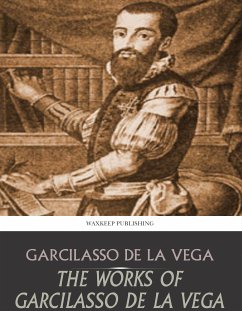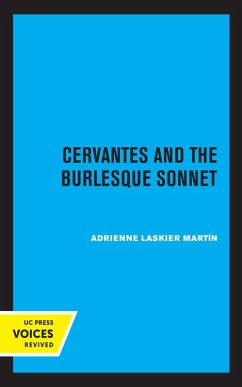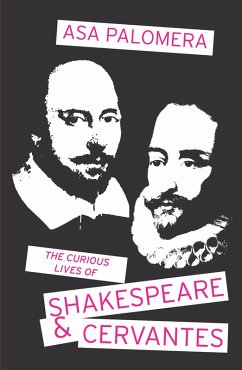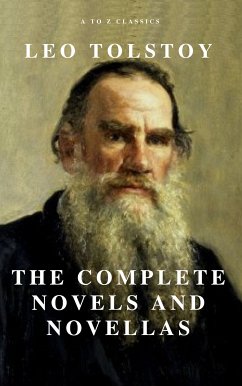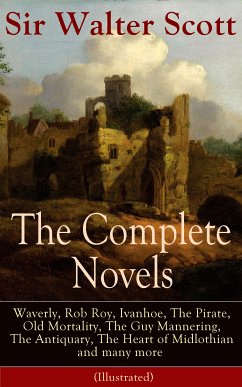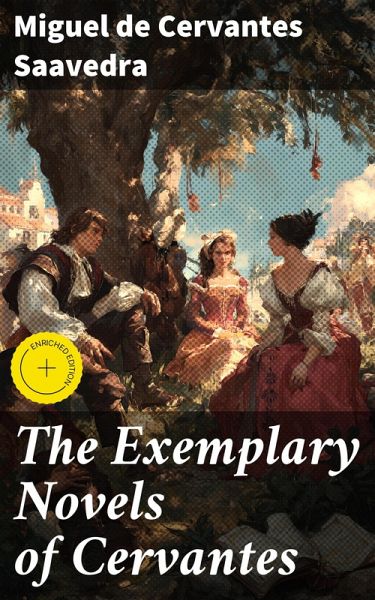
The Exemplary Novels of Cervantes (eBook, ePUB)
Enriched edition. Timeless Tales from Spain's Golden Age: A Masterful Collection of Classic Stories
Kommentar: Nicholson, Jared / Redaktion: Good Press / Übersetzer: Kelly, Walter K.

PAYBACK Punkte
0 °P sammeln!
In "The Exemplary Novels of Cervantes," Miguel de Cervantes showcases his mastery of storytelling through a collection of twelve short narratives, each rich with moral complexity and social commentary. Written during the early 17th century, these tales reflect the cultural and artistic currents of the Spanish Golden Age, often employing a satirical lens to explore themes of love, honor, and the human condition. Cervantes' inventive use of diverse narrative voices and his blending of genres 'Äì from pastoral to picaresque 'Äì render these novellas both engaging and reflective of the era's l...
In "The Exemplary Novels of Cervantes," Miguel de Cervantes showcases his mastery of storytelling through a collection of twelve short narratives, each rich with moral complexity and social commentary. Written during the early 17th century, these tales reflect the cultural and artistic currents of the Spanish Golden Age, often employing a satirical lens to explore themes of love, honor, and the human condition. Cervantes' inventive use of diverse narrative voices and his blending of genres 'Äì from pastoral to picaresque 'Äì render these novellas both engaging and reflective of the era's literary experimentation. Miguel de Cervantes, often heralded as the father of modern literature, drew from his tumultuous life experiences, including his captivity as a slave and his struggles as a soldier, to craft profound insights into societal norms. His keen observations of human behavior and relentless pursuit of literary excellence are evident throughout this collection. Cervantes' artistic ambitions were driven by a desire to elevate narrative forms and challenge the prevailing conventions of his time, resulting in refreshingly original works. This collection is highly recommended for readers seeking to immerse themselves in the psychological depth and moral reflections of early modern literature. A seminal work that transcends its historical context, "The Exemplary Novels of Cervantes" invites contemporary audiences to ponder timeless questions of human experience while appreciating the wit and creativity of one of history's most significant authors. In this enriched edition, we have carefully created added value for your reading experience: - A comprehensive Introduction outlines these selected works' unifying features, themes, or stylistic evolutions. - The Author Biography highlights personal milestones and literary influences that shape the entire body of writing. - A Historical Context section situates the works in their broader era-social currents, cultural trends, and key events that underpin their creation. - A concise Synopsis (Selection) offers an accessible overview of the included texts, helping readers navigate plotlines and main ideas without revealing critical twists. - A unified Analysis examines recurring motifs and stylistic hallmarks across the collection, tying the stories together while spotlighting the different work's strengths. - Reflection questions inspire deeper contemplation of the author's overarching message, inviting readers to draw connections among different texts and relate them to modern contexts. - Lastly, our hand-picked Memorable Quotes distill pivotal lines and turning points, serving as touchstones for the collection's central themes.
Dieser Download kann aus rechtlichen Gründen nur mit Rechnungsadresse in A, B, BG, CY, CZ, D, DK, EW, E, FIN, F, GR, H, IRL, I, LT, L, LR, M, NL, PL, P, R, S, SLO, SK ausgeliefert werden.






